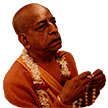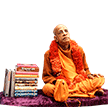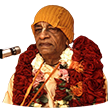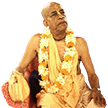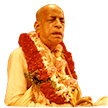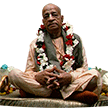Varnasrama-dharma - an essential subject: Difference between revisions
(Created page with "Category:Essential Subjects <!----------------------- edit below this line -----------------------> <!------------------------ begin introduction text below --------------...") |
(Vanibot #0041: Moves Choose Another box to the end) |
||
| Line 2: | Line 2: | ||
<!----------------------- edit below this line -----------------------> | <!----------------------- edit below this line -----------------------> | ||
<!------------------------ begin introduction text below ------------------------> | <!------------------------ begin introduction text below ------------------------> | ||
Bhāgavata dharma means the dharma of the soul, and ordinary dharma means the dharma of this body. Generally we understand the varṇāśrama-dharma, cātur-varṇyaṁ mayā śṛṣṭaṁ guṇa-karma-vibhāgaśaḥ: (BG 4.13) the brāhmaṇas, the kṣatriyas, the vaiśyas, and the śūdras, brahmacārī, gṛhasta, vānaprastha, and sannyāsa. So actually this is our..., Vedic principle is varṇāśrama-dharma. So this varṇāśrama-dharma is in relationship with this body. But we are not this body. Dehāntaraṁ prāp..., we are changing our body. So sometimes we may become a śūdra, sometimes we may become brāhmaṇa—that is change. | |||
Srila Prabhupada's books, lectures, conversations and letters offer a comprehensive presentation of this essential subject as seen in the Vaniquotes '''[[Vaniquotes:Category:Varnasrama-dharma|Varnasrama-dharma]]''' category. An introduction from his books is given below in the following | Srila Prabhupada's books, lectures, conversations and letters offer a comprehensive presentation of this essential subject as seen in the Vaniquotes '''[[Vaniquotes:Category:Varnasrama-dharma|Varnasrama-dharma]]''' category. An introduction from his books is given below in the following 8 quotes. | ||
<!-------- end introduction text and don't touch next three lines ---------> | <!-------- end introduction text and don't touch next three lines ---------> | ||
---- | ---- | ||
== Quotes from Srila Prabhupada's books == | == Quotes from Srila Prabhupada's books == | ||
<!----------------- edit quote boxes below this line -----------------> | <!----------------- edit quote boxes below this line -----------------> | ||
{{VaniQuotebox| | {{VaniQuotebox|Accepting the process of varnasrama-dharma will make a person's life successful because this will connect him with the Supreme Personality of Godhead, who is the goal of human life. Therefore the Krsna consciousness movement is meant for all of humanity|Accepting the process of varṇāśrama-dharma will make a person's life successful because this will connect him with the Supreme Personality of Godhead, who is the goal of human life. Therefore the Kṛṣṇa consciousness movement is meant for all of humanity. Although human society has different sections or subdivisions, all human beings belong to one species, and therefore we accept that they all have the ability to understand their constitutional position in connection with the Supreme Personality of Godhead, Viṣṇu. '''(Caitanya-caritāmṛta, Ādi-līlā 12.73)'''}} | ||
{{VaniQuotebox| | {{VaniQuotebox|A man retired from household life must practice austerities of the body, mind and tongue. That is tapasya. The entire varnasrama-dharma society is meant for tapasya. Without tapasya, or austerity, no human being can get liberation|If one lives for a hundred years, he should spend twenty—five years in student life, twenty-five in householder life, twenty-five in retired life and twenty-five in the renounced order of life. These are the regulations of the Vedic religious discipline. A man retired from household life must practice austerities of the body, mind and tongue. That is tapasya. The entire varṇāśrama-dharma society is meant for tapasya. Without tapasya, or austerity, no human being can get liberation. '''(Bhagavad-gītā 16.1-3)'''}} | ||
{{VaniQuotebox| | {{VaniQuotebox|Being a householder or living with a wife and children is never condemned, provided one lives according to the regulative principles of varnasrama-dharma|Lord Rāmacandra accepted only one wife and manifested sublime character, thus setting an example for householders. A householder should live according to the ideal of Lord Rāmacandra, who showed how to be a perfect person. Being a householder or living with a wife and children is never condemned, provided one lives according to the regulative principles of varṇāśrama-dharma. Those who live in accordance with these principles, whether as householders, brahmacārīs or vānaprasthas, are all equally important. '''(Śrīmad-Bhāgavatam 9.10.54)'''}} | ||
{{VaniQuotebox| | {{VaniQuotebox|By executing religious principles under the laws of varnasrama-dharma, one is placed in a comfortable position. One may very easily use his assets for the further advancement of Krsna consciousness|The good position one attains by executing religious principles is wasted as the plundering senses take it away. By executing religious principles under the laws of varṇaśrama-dharma, one is placed in a comfortable position. One may very easily use his assets for the further advancement of Kṛṣṇa consciousness. One should understand that the wealth and opportunity one gets in the material world should not be squandered in sense gratification. They are meant for the advancement of Kṛṣṇa consciousness. This Kṛṣṇa consciousness movement is therefore teaching people to control the mind and five knowledge-acquiring senses by a definite process. '''(Śrīmad-Bhāgavatam 5.14.2)'''}} | ||
{{VaniQuotebox| | {{VaniQuotebox|By following the principles of the varnasrama-dharma, one attains a better position in the material world|By following the principles of the varṇāśrama-dharma, one attains a better position in the material world. One may be rich, learned, beautiful or highborn. One who has all these assets should know that they are all meant for the advancement of Kṛṣṇa consciousness. Unfortunately, when a person is misguided he misuses his high position for sense gratification. Therefore the uncontrolled senses are considered plunderers. '''(Śrīmad-Bhāgavatam 5.14.2)'''}} | ||
{{VaniQuotebox| | {{VaniQuotebox|Caitanya Mahaprabhu advises that we not worry about the Vedic system of varnasrama-dharma|This is the whole scheme of Vedic civilization. However, this institution is very difficult to establish in this age; therefore Śrī Caitanya Mahāprabhu advises that we not worry about the Vedic system of varṇāśrama-dharma. Rather, we should take directly to the chanting of the Hare Kṛṣṇa mantra and simply hear about the Supreme Personality of Godhead from pure devotees. This is the process recommended by Śrī Caitanya Mahāprabhu, and this is the purpose for studying the Vedas. '''(Caitanya-caritāmṛta, Madhya-līlā 6.178)'''}} | ||
{{VaniQuotebox| | {{VaniQuotebox|Considering the position of devotional service and the sankirtana movement, Sri Caitanya Mahaprabhu deemed the system of varnasrama-dharma to be material, although it aims at elevation to the spiritual platform|It is imported from the spiritual world, Goloka Vṛndāvana. Narottama dāsa Ṭhākura laments that mundane people do not take this saṅkīrtana movement seriously. Considering the position of devotional service and the saṅkīrtana movement, Śrī Caitanya Mahāprabhu deemed the system of varṇāśrama-dharma to be material, although it aims at elevation to the spiritual platform. However, the saṅkīrtana movement can raise one immediately to the spiritual platform. '''(Caitanya-caritāmṛta, Madhya-līlā 8.60)'''}} | ||
{{VaniQuotebox| | {{VaniQuotebox|Even though saintly persons are always aloof from society, out of mercy and compassion they consider how the citizens can peacefully execute their rituals and follow the rules and regulations of varnasrama-dharma|Thus the saintly persons became very anxious for the safety of the people in general. The conclusion is that even though saintly persons have no business in political affairs, they are always compassionate upon the people in general. Thus even though they are always aloof from society, out of mercy and compassion they consider how the citizens can peacefully execute their rituals and follow the rules and regulations of varṇāśrama-dharma. '''(Śrīmad-Bhāgavatam 4.14.37)'''}} | ||
<!----------------- edit quote boxes above this line -----------------> | <!----------------- edit quote boxes above this line -----------------> | ||
| Line 31: | Line 31: | ||
'''Varnasrama-dharma - [[Vaniquotes:Category:Varnasrama-dharma|explore more within this category]]'''. | '''Varnasrama-dharma - [[Vaniquotes:Category:Varnasrama-dharma|explore more within this category]]'''. | ||
{{EsentialSubjectTotal}} | {{EsentialSubjectTotal}} | ||
<div style="float:left;"> | |||
{{EssentialSubjectnav}} | |||
</div> | |||
__NOTOC__ | __NOTOC__ | ||
__NOEDITSECTION__ | __NOEDITSECTION__ | ||
Latest revision as of 18:06, 22 November 2020
Bhāgavata dharma means the dharma of the soul, and ordinary dharma means the dharma of this body. Generally we understand the varṇāśrama-dharma, cātur-varṇyaṁ mayā śṛṣṭaṁ guṇa-karma-vibhāgaśaḥ: (BG 4.13) the brāhmaṇas, the kṣatriyas, the vaiśyas, and the śūdras, brahmacārī, gṛhasta, vānaprastha, and sannyāsa. So actually this is our..., Vedic principle is varṇāśrama-dharma. So this varṇāśrama-dharma is in relationship with this body. But we are not this body. Dehāntaraṁ prāp..., we are changing our body. So sometimes we may become a śūdra, sometimes we may become brāhmaṇa—that is change.
Srila Prabhupada's books, lectures, conversations and letters offer a comprehensive presentation of this essential subject as seen in the Vaniquotes Varnasrama-dharma category. An introduction from his books is given below in the following 8 quotes.
Quotes from Srila Prabhupada's books
Varnasrama-dharma - explore more within this category.
Vanipedia has now over 903 introductory articles compiled from Srila Prabhupada's books under the series titled Essential Subjects. All these articles can be seen in the Table of Content on the right side of this article and also here in this Umbrella Category. Browse through them to relish the breadth and depth of Srila Prabhupada's teachings - There is a subject for everyone.

